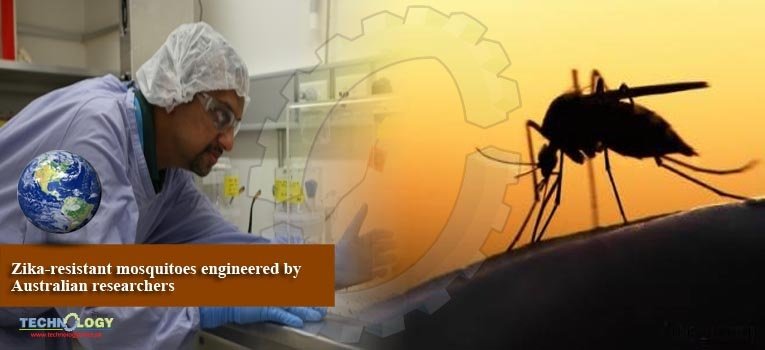Australian scientists have made a major breakthrough in the fight against the Zika virus.

The Commonwealth Scientific and Industrial Research Organization (CSIRO) said that it has successfully engineered mosquitoes resistant to spreading the deadly virus.
Zika virus, named after Uganda’s Forest, is spread by daytime-active Aeges aegypti mosquitoes.
It caused more than 4,000 birth defects worldwide in 2015 alone and remains a major threat to millions of people.
Researchers from the CSIRO and University of California San Diego found that injecting mosquito embryos with a synthetic anti-Zika gene prevented them from carrying the virus as adults.
“Our study found the mosquitoes with an anti-Zika gene were unable to pick up Zika when they fed, so they were incapable of spreading the virus to anybody else,” CSIRO Senior Research Scientist and paper co-author Prasad Paradkar said in a statement on Wednesday.
“With further investigation, this mosquito could potentially one day be used to replace populations of wild Aedes aegypti, adding to the arsenal of control strategies against this mosquito to halt the virus’ spread around the world.”
Zika has not spread to Australia but the invasive Aedes aegypti has established itself in the nation’s tropical north.
“Infection during pregnancy can cause life-threatening complications to a fetus or newborn baby, including birth defects such as microcephaly,” Paradkar said.
“With increased globalization and international travel, the virus is capable of making it to Australian shores someday – so we’re collaborating with international partners to find innovative ways to reduce the risk both to Australians and to people around the world.”